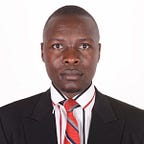The Urgent Need for Grassroots Participation in Health in Uganda
I felt like I was stepping into a completely new world when I joined the Center for Health, Human Rights, and Development (CEHURD) as a Monitoring and Evaluation (M&E) Associate and a Global Health Corps fellow in late July. I had been working in health and nutrition programs for refugees in Uganda, so I was transitioning from measuring the impact of direct service delivery to the impact of health advocacy. Physically, I had moved from working across three refugee settlements to being based in an office in Kampala.
As I discussed my role with a colleague in the M&E department during the first few days, I was quick to ask how CEHURD ensures health project sustainability in the communities they work. “We work with CHAs for all our projects at the grassroots level,” she answered. From my silence and facial expression, she knew I didn’t understand what she meant. She explained that CHAs are Community Health Advocates that bridge the gap between CEHURD and the communities in which we work. CHAs are selected from a pool of different cultures, clans, tribes, families, different professions and education backgrounds, but they are all united by the common goal of achieving social justice and health equity.
As I read through project documents and reports, I discovered that CEHURD’s DREAMS project uses an innovative approach of “Integrating Legal Empowerment and Social Accountability for Quality HIV Health Services for Adolescent Girls and Young Women aged 15–24 years” in Gomba and Mukono districts in Uganda. Under this project, CHAs who are adolescent girls and young women between 15 and 24 years old are trained on HIV-related services, including the legal, health, social and gender frameworks to support HIV service provision and address gender-based violence (GBV), a key health risk factor affecting this population in Uganda. These CHAs have shared this information with over 10,000 adolescent girls and young women, along with their partners, spouses, children, parents, family members and community leaders. What an achievement!
The CHAs have also built other adolescent girls and young women’s capacity to refuse sex, negotiate safe sex, access pre-exposure prophylaxis (PreP), and access HIV services like testing and counseling. They now have the capacity to identify and report GBV cases to local authorities and law enforcers like police in pursuit of justice for the victims. CHAs have reported several GBV cases and some have been forwarded to the courts for hearings with the support of CEHURD. The CHAs are now empowered to engage in district and national level discussions to advocate for better health services and policies for their communities. Health interventions come and go all the time, but the skills, knowledge, and capacities built can only continue to thrive if the community is engaged.
Besides sustainability, CHAs have contributed to effective and efficient use of resources while achieving high quality outcomes. Many community members feel more comfortable asking for health-related information from CHAs than from any other medical professional because of the social and cultural ties they share. Recent research shows that this kind of connection matters. CHAs have helped to break the social and cultural barriers that threaten social justice and access to health services among vulnerable persons like pregnant and lactating women. They are influential in addressing social determinants that create inequalities in access to health services, often successfully advocating for girls’ rights to remain in school and sensitizing girls and parents on the dangers of early and forced marriages.
Because health is affected by social, economic and environmental factors which affect everyone, it is everyone’s responsibility to protect and promote it. Community participation in global health initiatives can be summarized as: I know my health challenges but I don’t know all the solutions to fix them. I will tell you my health challenges. You will give me the skills, information, and knowledge to solve them. Then I will define my own lasting health destiny as well as my community’s.
As more people understand that health is a human right and are equipped with the skills to advocate for it, our movement of health leaders and changemakers will grow. This is what we believe in at Global Health Corps, and it’s why I’m proud to be part of this movement.
Health equity can be achieved if we engage and empower our communities to gather their power and claim their rights. Let’s get to work.
Frank Ategeka is a 2018–2019 Global Health Corps fellow in Uganda.
Global Health Corps (GHC) is a leadership development organization building the next generation of health equity leaders around the world. All GHC fellows, partners, and supporters are united in a common belief: health is a human right. Want to get involved? Check out these great opportunities to support the health equity movement and consider joining us as a fellow or partner when applications open later this year! And don’t forget to connect with us on Twitter / Instagram / Facebook.
